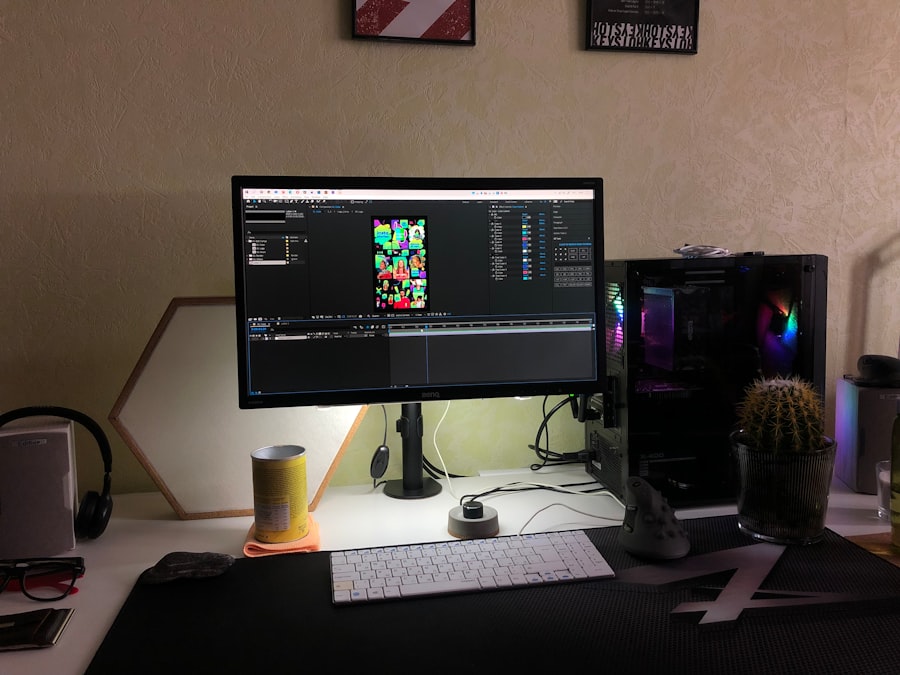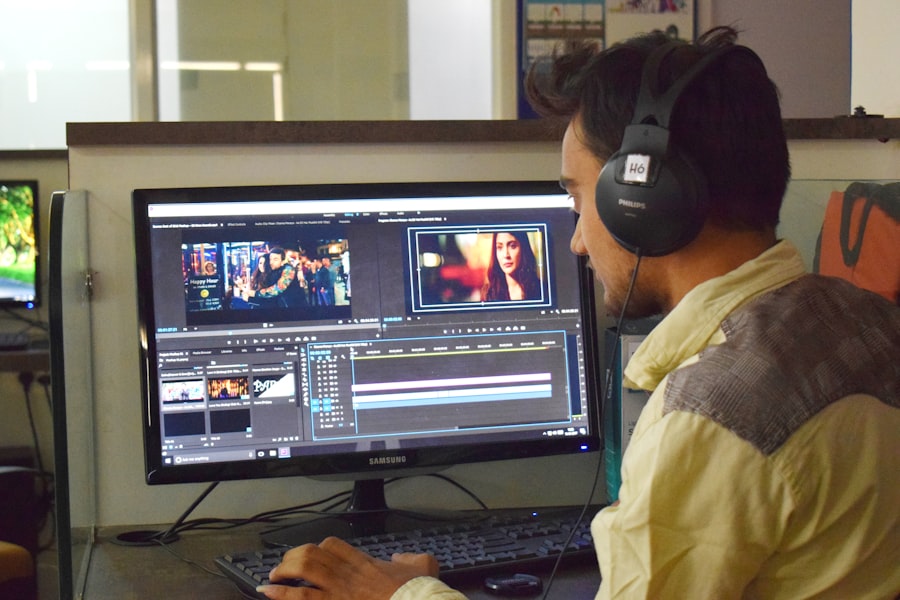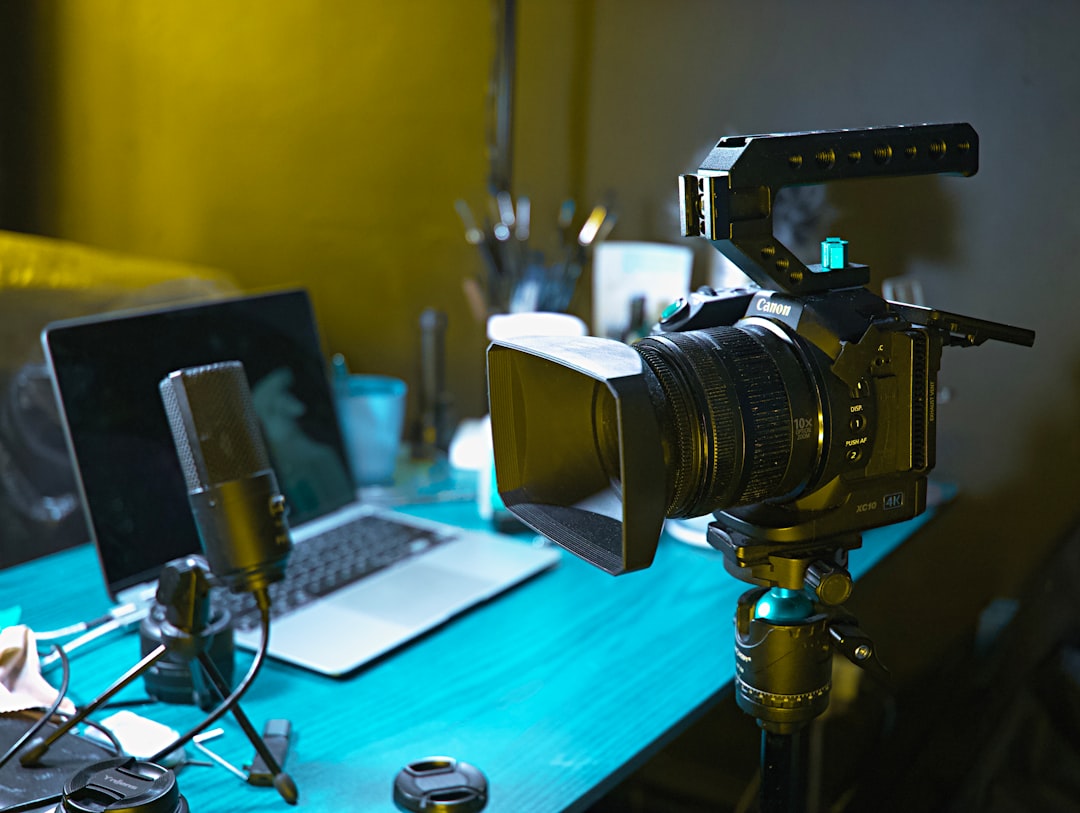In recent years, artificial intelligence has made significant strides in various industries, and video editing is no exception. You may have noticed how AI tools are increasingly being integrated into video production workflows, streamlining processes that once required hours of manual labor. From automated color correction to intelligent scene detection, AI is revolutionizing the way you approach video editing.
The rise of AI in this field is not merely a trend; it represents a fundamental shift in how content is created and consumed. As you delve deeper into the world of video editing, you might find that AI technologies are becoming more accessible to both amateur and professional editors alike. With user-friendly interfaces and powerful algorithms, these tools allow you to enhance your projects without needing extensive technical knowledge.
This democratization of video editing means that anyone with a creative vision can now produce high-quality content, making the landscape more competitive and diverse than ever before.
Key Takeaways
- AI is revolutionizing the video editing industry, making processes faster and more efficient.
- Traditional video editing jobs are being transformed by AI, with tasks like color correction and object removal being automated.
- The impact of AI on the video editing industry includes increased productivity, cost savings, and the potential for new creative possibilities.
- Automation plays a crucial role in video editing, allowing for repetitive tasks to be completed quickly and accurately.
- Advantages of AI in video editing include improved efficiency, while disadvantages include potential job displacement and ethical concerns.
How AI is Transforming Traditional Video Editing Jobs
The integration of AI into video editing is reshaping traditional roles within the industry. You may have noticed that tasks that once required a dedicated team of editors can now be accomplished by a single individual using AI-powered software. This shift has led to a re-evaluation of job descriptions and responsibilities, as many routine tasks are automated.
For instance, AI can now handle tedious processes like syncing audio and video tracks or generating rough cuts, allowing you to focus on more creative aspects of your projects. However, this transformation does not come without its challenges. As AI takes over repetitive tasks, you might find that the demand for traditional editing roles is diminishing.
While some positions may become obsolete, new opportunities are emerging that require a different skill set. You may need to adapt to these changes by embracing technology and learning how to work alongside AI tools effectively. The key is to remain flexible and open-minded as the industry evolves.
The Impact of AI on the Video Editing Industry

The impact of AI on the video editing industry is profound and multifaceted. As you explore this new landscape, you’ll see that AI not only enhances efficiency but also influences the creative process itself. With advanced algorithms capable of analyzing footage and suggesting edits, you can leverage these insights to make more informed decisions about your projects.
This capability allows for a more collaborative relationship between human editors and AI systems, ultimately leading to higher-quality outputs. Moreover, the use of AI in video editing has implications for content distribution as well. You may find that platforms are increasingly utilizing AI to analyze viewer preferences and tailor content accordingly.
This means that your work as an editor can reach a more targeted audience, maximizing engagement and impact. However, this also raises questions about the nature of creativity and originality in an age where algorithms play a significant role in shaping content.
The Role of Automation in Video Editing
| Metrics | Value |
|---|---|
| Time Saved | 50% |
| Accuracy | 95% |
| Cost Reduction | 30% |
| Productivity Increase | 40% |
Automation is at the heart of AI’s influence on video editing. As you navigate through various editing software, you’ll likely encounter features that automate tasks such as cutting, transitions, and even effects application. This automation not only speeds up the editing process but also reduces the likelihood of human error.
You can spend less time on mundane tasks and more time honing your storytelling skills, which is essential in creating compelling narratives. However, while automation offers numerous benefits, it also presents challenges that you must consider. The reliance on automated processes can lead to a loss of personal touch in your edits.
You may find yourself questioning whether the final product truly reflects your artistic vision or if it has been overly influenced by algorithms. Striking a balance between automation and personal creativity will be crucial as you adapt to this new era of video editing.
Advantages and Disadvantages of AI in Video Editing
As with any technological advancement, the integration of AI in video editing comes with its own set of advantages and disadvantages. On one hand, you can enjoy increased efficiency, reduced costs, and enhanced creative possibilities. AI tools can help you analyze large volumes of footage quickly, allowing for faster turnaround times on projects.
This efficiency can be particularly beneficial in fast-paced environments where deadlines are tight. On the other hand, there are concerns about job displacement and the potential loss of creative control. As you rely more on AI-driven tools, you might feel that your unique style is being overshadowed by algorithmic suggestions.
Additionally, there is the risk of homogenization in content creation, where videos begin to look and feel similar due to reliance on standardized AI processes. Navigating these pros and cons will be essential as you carve out your niche in the evolving landscape of video editing.
The Future of Video Editing Jobs in the Age of AI

Looking ahead, the future of video editing jobs in the age of AI is both exciting and uncertain. As technology continues to advance, you may find that new roles emerge that focus on managing and optimizing AI tools rather than traditional editing tasks. Positions such as AI content strategist or data-driven editor could become commonplace as companies seek individuals who can harness the power of AI while maintaining a human touch.
However, it’s important to recognize that while some jobs may disappear, others will evolve rather than vanish entirely. You might find that your role as a video editor will require a blend of technical skills and creative intuition. Embracing lifelong learning will be crucial as you adapt to new technologies and methodologies in this rapidly changing environment.
How Video Editors Can Adapt to the AI Revolution
To thrive in the age of AI, you must be proactive in adapting your skills and mindset. One effective strategy is to familiarize yourself with various AI tools available in the market. By understanding how these technologies work and their potential applications, you can position yourself as an invaluable asset in any production team.
Experimenting with different software will not only enhance your technical proficiency but also inspire new creative approaches.
You may want to explore areas such as data analysis or machine learning basics to better understand how AI operates within the video editing landscape.
By becoming well-versed in these subjects, you’ll be better equipped to collaborate with AI systems effectively while ensuring that your unique voice remains at the forefront of your work.
The Evolution of Skills Required for Video Editing in the AI Era
As AI continues to shape the video editing landscape, the skills required for success are evolving as well. You may find that technical proficiency in software is no longer enough; understanding how to leverage AI tools effectively will become increasingly important. Familiarity with machine learning concepts and data analytics can give you a competitive edge as you navigate this new terrain.
Moreover, soft skills such as adaptability and creativity will be paramount in this changing environment. As an editor, you’ll need to think critically about how to integrate AI into your workflow while maintaining your artistic vision. Emphasizing collaboration—both with fellow creatives and with technology—will be essential for producing innovative content that resonates with audiences.
The Ethical Implications of AI in Video Editing
The rise of AI in video editing also brings forth ethical considerations that you must grapple with as a professional in the field. Issues such as copyright infringement, data privacy, and algorithmic bias are becoming increasingly relevant as technology advances.
Furthermore, there is a growing concern about the potential for misinformation and manipulation through edited content generated by AI systems. As an editor, it’s crucial to remain vigilant about the ethical implications of your work and ensure that you uphold standards of integrity and authenticity in your projects.
The Potential for Creativity and Innovation with AI in Video Editing
Despite the challenges posed by AI integration, there is immense potential for creativity and innovation within video editing. You may discover that AI tools can serve as catalysts for new ideas rather than constraints on your artistic expression. By leveraging advanced algorithms for tasks like color grading or sound design, you can push the boundaries of what’s possible in your projects.
Moreover, collaboration between human editors and AI systems can lead to groundbreaking results that neither could achieve alone. As you experiment with these technologies, you might find yourself inspired by unexpected outcomes or novel approaches to storytelling that challenge conventional norms.
The Importance of Human Oversight in AI-Driven Video Editing
While AI offers numerous advantages in video editing, human oversight remains essential for ensuring quality and authenticity. As you navigate this new landscape, it’s crucial to maintain a critical eye on the outputs generated by AI systems. Your unique perspective as a human editor allows you to infuse emotion and nuance into your work—elements that algorithms often struggle to replicate.
In conclusion, while embracing the advancements brought by AI is vital for staying relevant in the industry, never underestimate the value of your human intuition and creativity. By combining technological prowess with your artistic sensibilities, you can create compelling narratives that resonate deeply with audiences while navigating the complexities of an ever-evolving landscape.
The rise of artificial intelligence in the creative industry is reshaping the landscape of video editing jobs. As AI technology becomes more sophisticated, it is increasingly capable of performing tasks that were once the domain of human editors, such as cutting, splicing, and even applying complex effects. This shift is causing concern among professionals who fear that their roles may be diminished or replaced entirely. An insightful article discussing the impact of AI on video editing jobs can be found on How Wealth Grows. For more information, you can read the full article by visiting How Wealth Grows.
FAQs
What is AI video editing?
AI video editing refers to the use of artificial intelligence technology to automate and enhance the video editing process. This can include tasks such as video analysis, scene detection, color correction, and even the creation of video montages.
How does AI impact video editing jobs?
AI has the potential to automate repetitive and time-consuming tasks in video editing, such as sorting through footage, identifying key moments, and applying basic editing effects. This can free up video editors to focus on more creative and complex aspects of their work.
What are the benefits of AI in video editing?
The use of AI in video editing can lead to increased efficiency, reduced production costs, and improved consistency in the editing process. It can also help to speed up the overall production timeline and allow for more experimentation and creativity in the editing process.
What are the potential drawbacks of AI in video editing?
While AI can automate many aspects of video editing, it may also raise concerns about job displacement and the potential for AI to replace human editors. Additionally, there may be limitations to the creative decision-making and intuition that human editors bring to the editing process.
What skills are still important for video editors in the age of AI?
Even with the rise of AI in video editing, human editors will still need to possess strong storytelling abilities, creative vision, and technical expertise in order to produce high-quality and engaging video content. Collaboration, communication, and adaptability will also remain important skills for video editors.
